Bye, Bye, Buick: A German-American Convertible Prepares to Exit the Stage

Everyone knew this was coming, but now it’s official. The current model year will be the Buick Cascada’s last.
Hitting dealer (and rental) lots in the U.S. at the dawn of 2016, the Opel-built drop top motivated its two-ton weight with a turbocharged 1.6-liter four-cylinder — an engine that gave away the model’s European heritage. With Opel no longer in the hands of General Motors, Americans stand to lose another model that, while perhaps not hugely desirable, is at least interesting and different.
Word of the Cascada’s discontinuation date comes via Automotive News, which cites GM’s plan to end production over the summer. Dealers have been told to make their final order. Thus, the 2019 Cascada will be the last Cascada.
Now owned by France’s PSA Group, Opel announced plans last fall to cease production of three car models, including the Cascada. The convertible-only model calls Poland home and is sold by various marques, depending on market. Britain’s Vauxhall has its own Cascada, as does Australia’s Holden brand.
Buick, soon to be left with only a single passenger car, touted the Cascada’s ability to draw new buyers into the brand.
“The Cascada has played its role in the portfolio perfectly, outselling many other premium convertibles while bringing in [six of every 10] buyers from outside GM,” the brand said in a statement to Automotive News. “However, it has reached the end of its originally-planned lifecycle and 2019 will be the last model year offered. Dealers have been notified and many will have stock through the rest of this year.”
While debate raged smoldered over the past few years as to the Cascada’s attributes, the car did fill a role in sunny climes, what with the demise of the Chrysler Sebring/200 convertible. The car’s sales told the story, however. Its first year on the U.S. market proved to be its best, with volume falling off in each subsequent year. Only one month saw the Cascada top 1,000 units (April 2016). The Cascada’s fourth-quarter 2018 sales totalled just 743 vehicles — a 26.1 percent decline from Q4 2017.
With the Cascada’s death, America loses not only its last two-door Buick, but also its last “domestic” non-sports car convertible (of the car variety, that is). Those seeking a roomy whip for sedate boulevard cruising had best call up the Germans.
[Images: General Motors]

More by Steph Willems
Latest Car Reviews
Read moreLatest Product Reviews
Read moreRecent Comments
- 1995 SC If the necessary number of employees vote to unionize then yes, they should be unionized. That's how it works.
- Sobhuza Trooper That Dave Thomas fella sounds like the kind of twit who is oh-so-quick to tell us how easy and fun the bus is for any and all of your personal transportation needs. The time to get to and from the bus stop is never a concern. The time waiting for the bus is never a concern. The time waiting for a connection (if there is one) is never a concern. The weather is never a concern. Whatever you might be carrying or intend to purchase is never a concern. Nope, Boo Cars! Yeah Buses! Buses rule!Needless to say, these twits don't actual take the damn bus.
- MaintenanceCosts Nobody here seems to acknowledge that there are multiple use cases for cars.Some people spend all their time driving all over the country and need every mile and minute of time savings. ICE cars are better for them right now.Some people only drive locally and fly when they travel. For them, there's probably a range number that works, and they don't really need more. For the uses for which we use our EV, that would be around 150 miles. The other thing about a low range requirement is it can make 120V charging viable. If you don't drive more than an average of about 40 miles/day, you can probably get enough electrons through a wall outlet. We spent over two years charging our Bolt only through 120V, while our house was getting rebuilt, and never had an issue.Those are extremes. There are all sorts of use cases in between, which probably represent the majority of drivers. For some users, what's needed is more range. But I think for most users, what's needed is better charging. Retrofit apartment garages like Tim's with 240V outlets at every spot. Install more L3 chargers in supermarket parking lots and alongside gas stations. Make chargers that work like Tesla Superchargers as ubiquitous as gas stations, and EV charging will not be an issue for most users.
- MaintenanceCosts I don't have an opinion on whether any one plant unionizing is the right answer, but the employees sure need to have the right to organize. Unions or the credible threat of unionization are the only thing, history has proven, that can keep employers honest. Without it, we've seen over and over, the employers have complete power over the workers and feel free to exploit the workers however they see fit. (And don't tell me "oh, the workers can just leave" - in an oligopolistic industry, working conditions quickly converge, and there's not another employer right around the corner.)
- Kjhkjlhkjhkljh kljhjkhjklhkjh [h3]Wake me up when it is a 1989 635Csi with a M88/3[/h3]
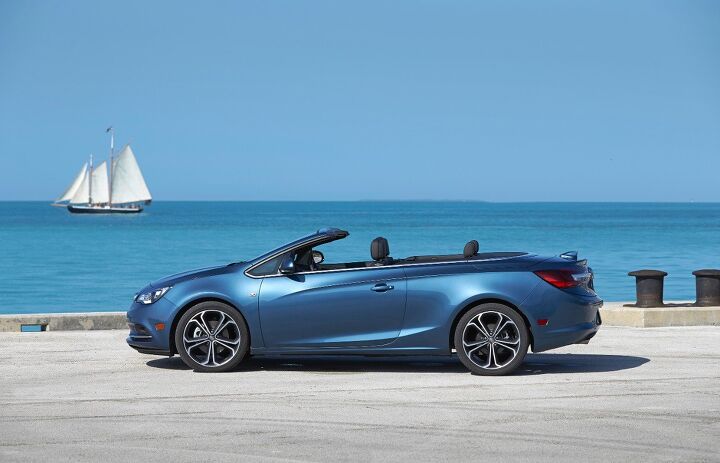





















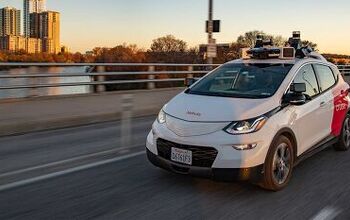

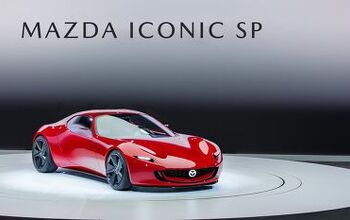


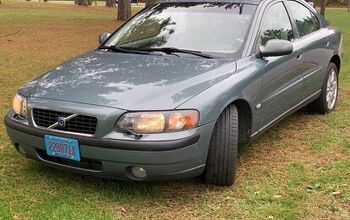
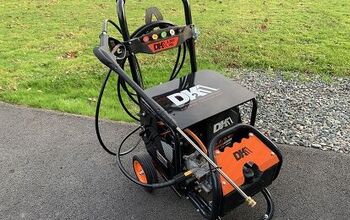



Comments
Join the conversation
Apparently, PSA has turned Opel around in just a year's time. This is something GM management simply could not do. This perfectly illustrates that GM management simply is not effective. The article below also claims wall street and its stockholders give GM little flexibility. How long will it be until PSA drops GM to fifth place in international sales. Remember, people never thought Nissan will surpass GM in global sales. https://europe.autonews.com/article/20180829/ANE/180829754/how-psa-turned-around-opel-gm-s-german-castoff
Look, I love a relaxed fit convertible. I had a '93 Cutlass and before that an '86 Aries. Sometimes you just want a nice four seater convertible with a useable back seat and trunk, a segment nicely filled at one point by the Solara/LeBaron/Sebring. The Camaro is too silly, the Germans are too expensive/fragile/cramped, and the Mustang is too small. The Cascada had the Opel build against it (I had a Catera, so nope) then it had no useable back seat and it was ugly inside with cheap, ugly black plastics. GM hasn't built a car I would be remotely interested in buying in years and doesn't seem likely to.